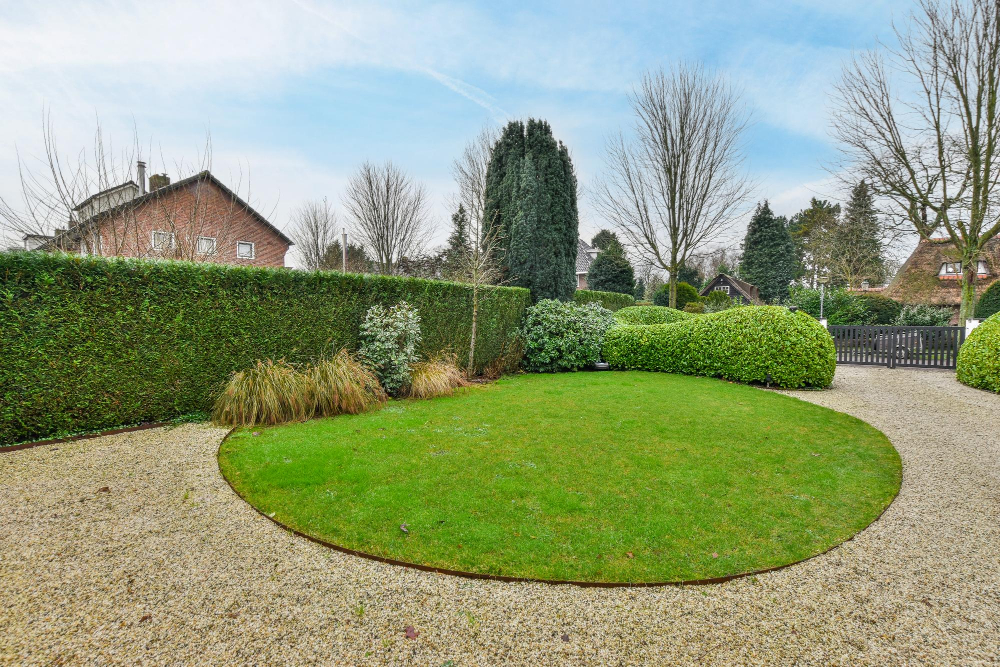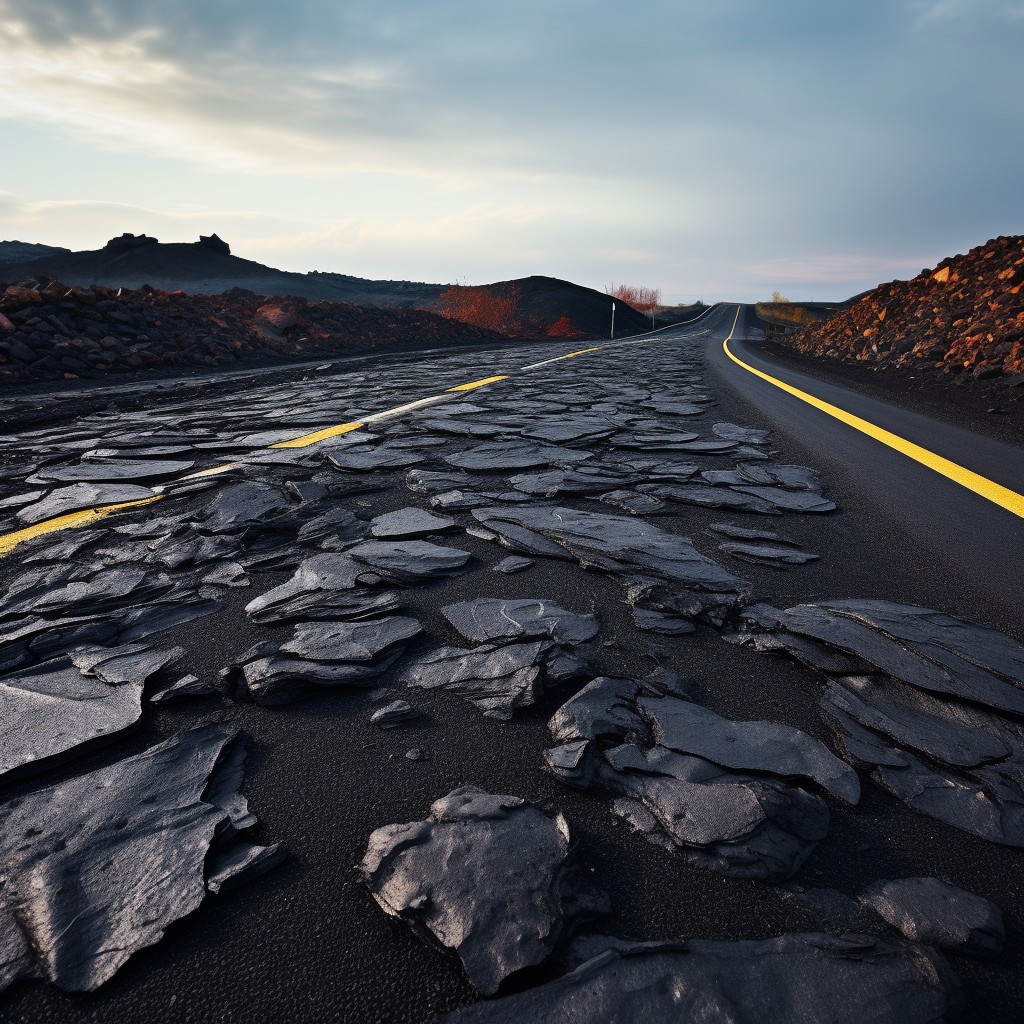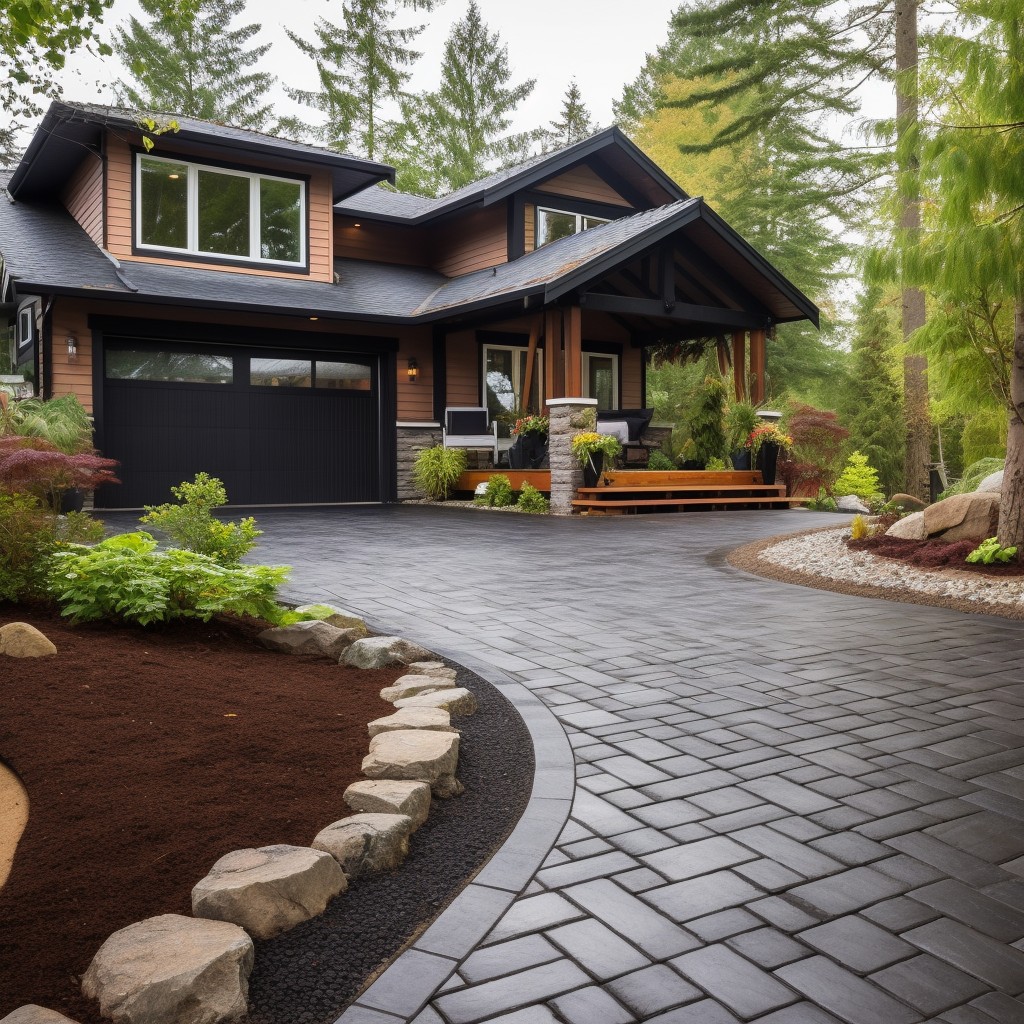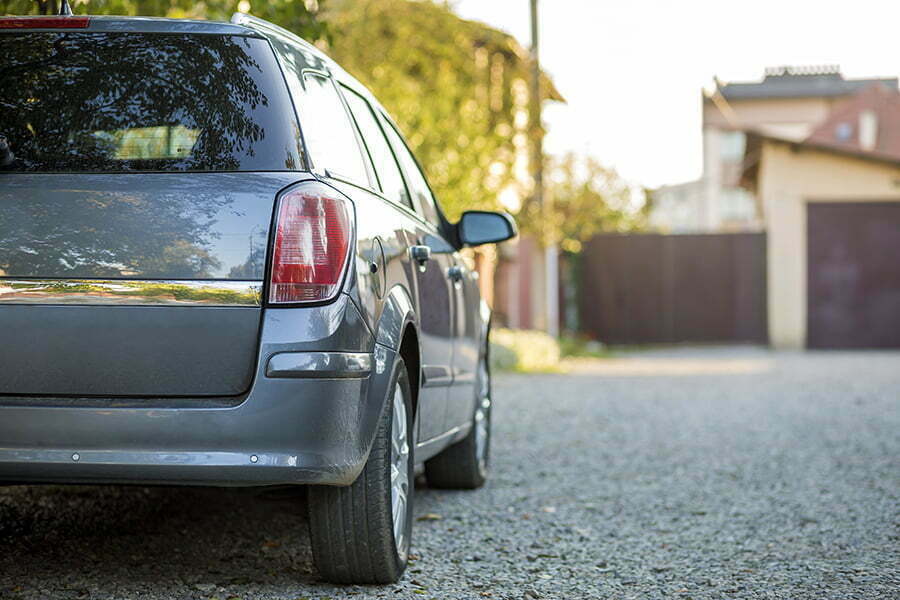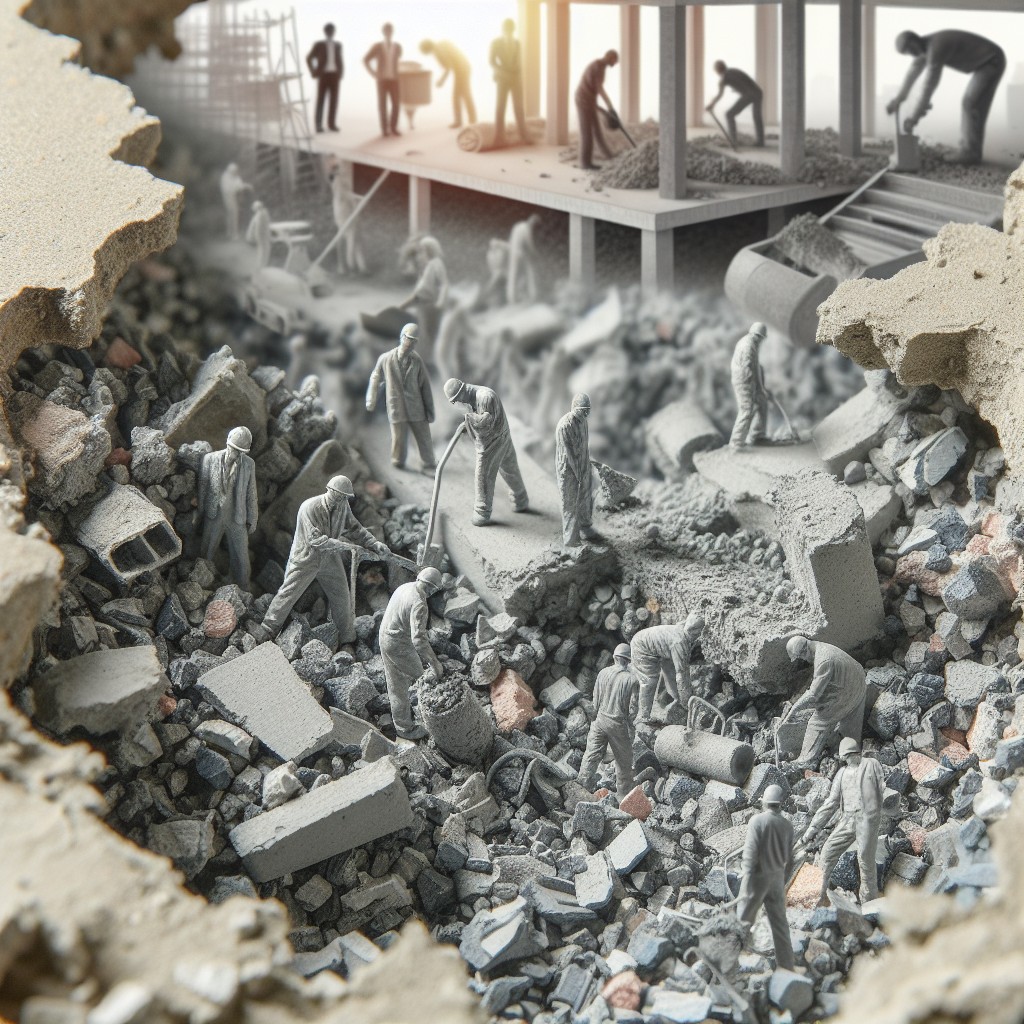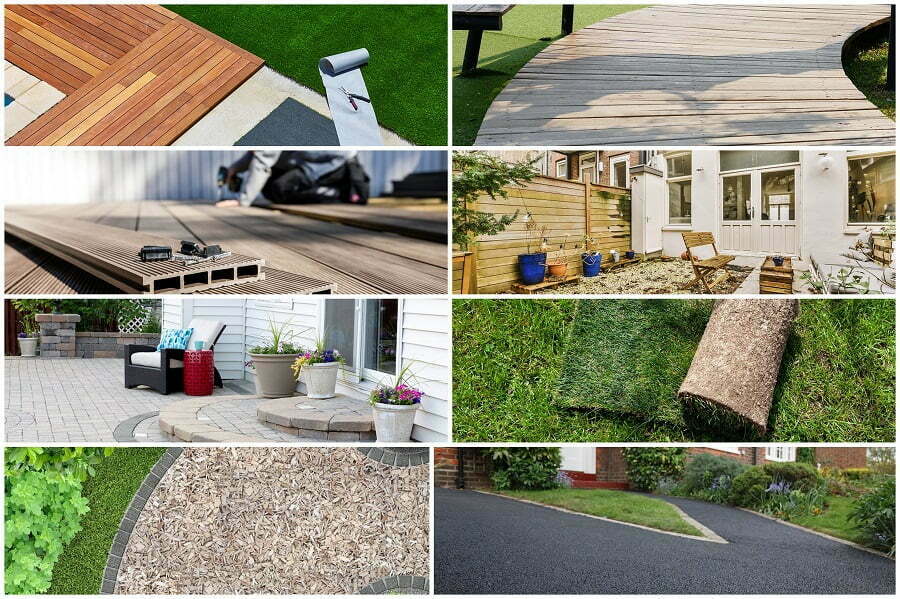Last updated on
Explore the various concrete driveway alternatives available, offering eco-friendly, cost-effective, and visually appealing options for your home’s entrance.
Welcome to my latest blog post! Today, we’re going to talk about something that’s often overlooked when it comes to home decor: the driveway. Yes, you read that right – the driveway can actually be a key element in creating a stunning exterior for your home.
But what if you don’t want to spend a fortune on pouring concrete or laying down expensive pavers? Fear not, because I’ve got some amazing concrete driveway alternatives that will not only save you money but also add some serious curb appeal. So let’s dive in and discover how you can create a beautiful driveway without breaking the bank!
Gravel Driveways
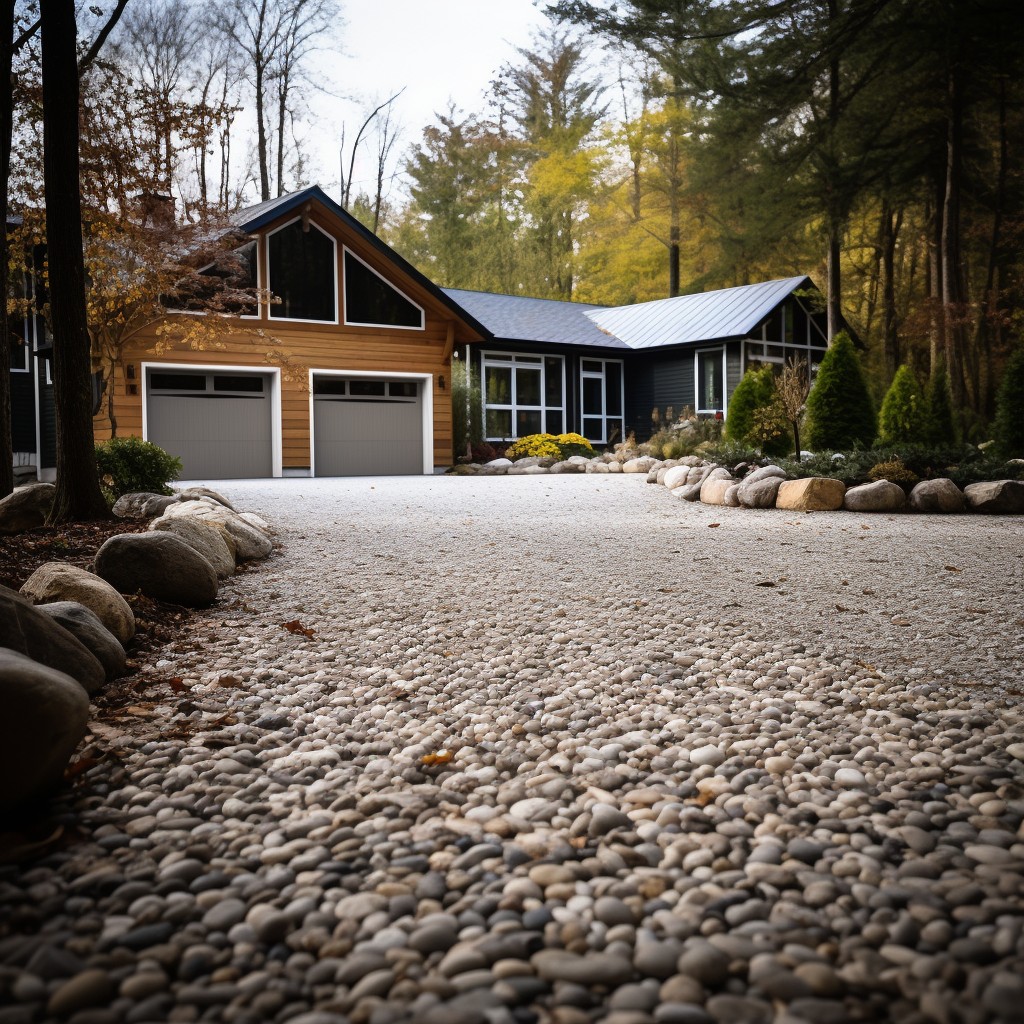
If you’re looking for a cost-effective and low-maintenance option, gravel driveways are an excellent choice. Not only do they provide a rustic charm to your home’s exterior, but they also offer great drainage and can be easily installed by yourself or with the help of professionals.
One of the biggest advantages of gravel driveways is their affordability. They are significantly cheaper than concrete or asphalt options while still providing durability and longevity.
Maintenance is minimal – all you need to do is occasionally rake out any debris that accumulates on top.
Another benefit of choosing a gravel driveway over other materials is its versatility in terms of design options. You can choose from various types and colors depending on your preference, which allows for customization that fits perfectly with your home’s aesthetic.
However, it’s important to note that there are some downsides to consider before committing to this type of driveway material. Gravel tends to shift around over time due to weather conditions such as rain or snowfall; therefore regular re-grading may be necessary every few years.
Asphalt Driveways
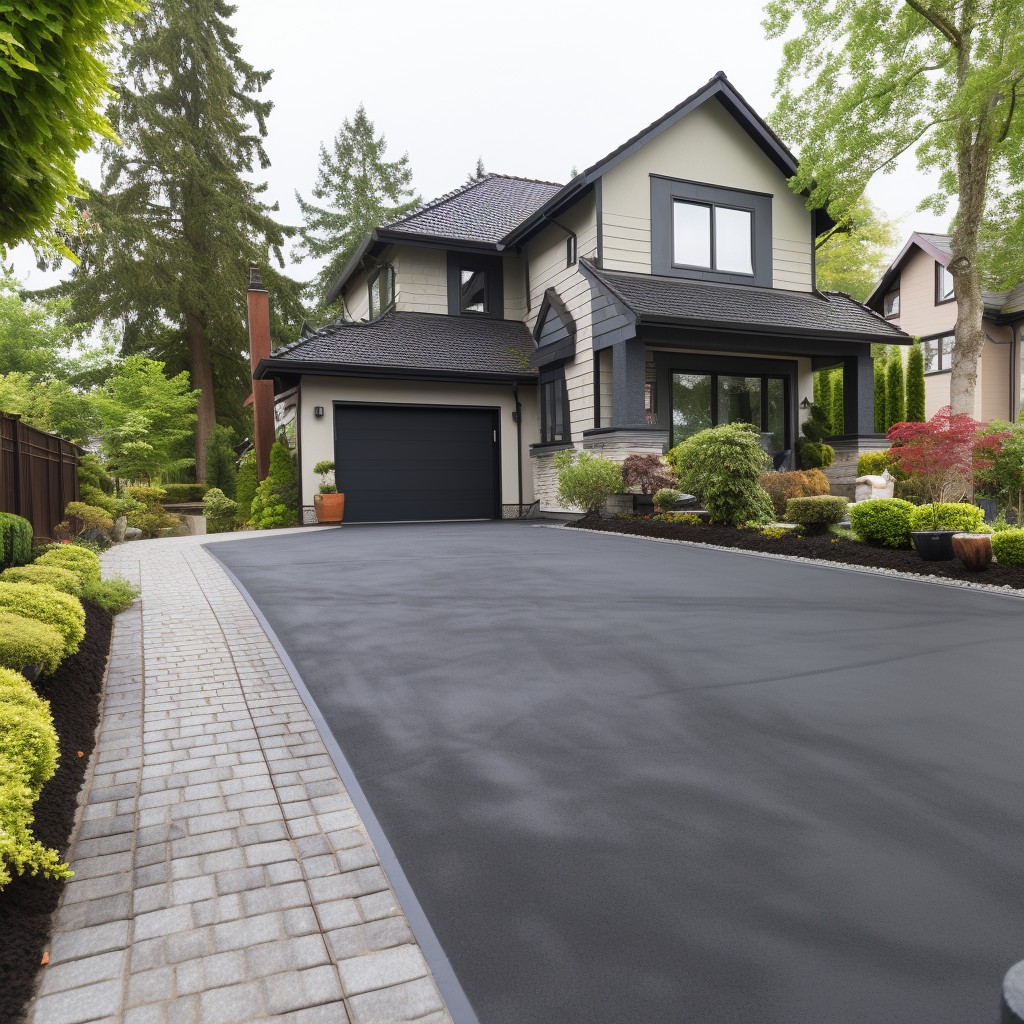
They are made from a mixture of sand, gravel, and asphalt cement that is heated and poured onto the driveway surface. Asphalt driveways have several advantages over concrete ones: they are less expensive to install, require less maintenance over time, and can be repaired easily if damaged.
One thing to keep in mind with asphalt driveways is that they do require periodic sealing to prevent cracking or fading due to exposure to the elements. However, this process is relatively simple and can be done by homeowners themselves or by hiring professionals.
Another benefit of choosing an asphalt driveway is its ability to withstand extreme temperatures without cracking or heaving like concrete does. This makes it ideal for areas with harsh winters where freeze-thaw cycles can wreak havoc on other types of surfaces.
Paver Driveways
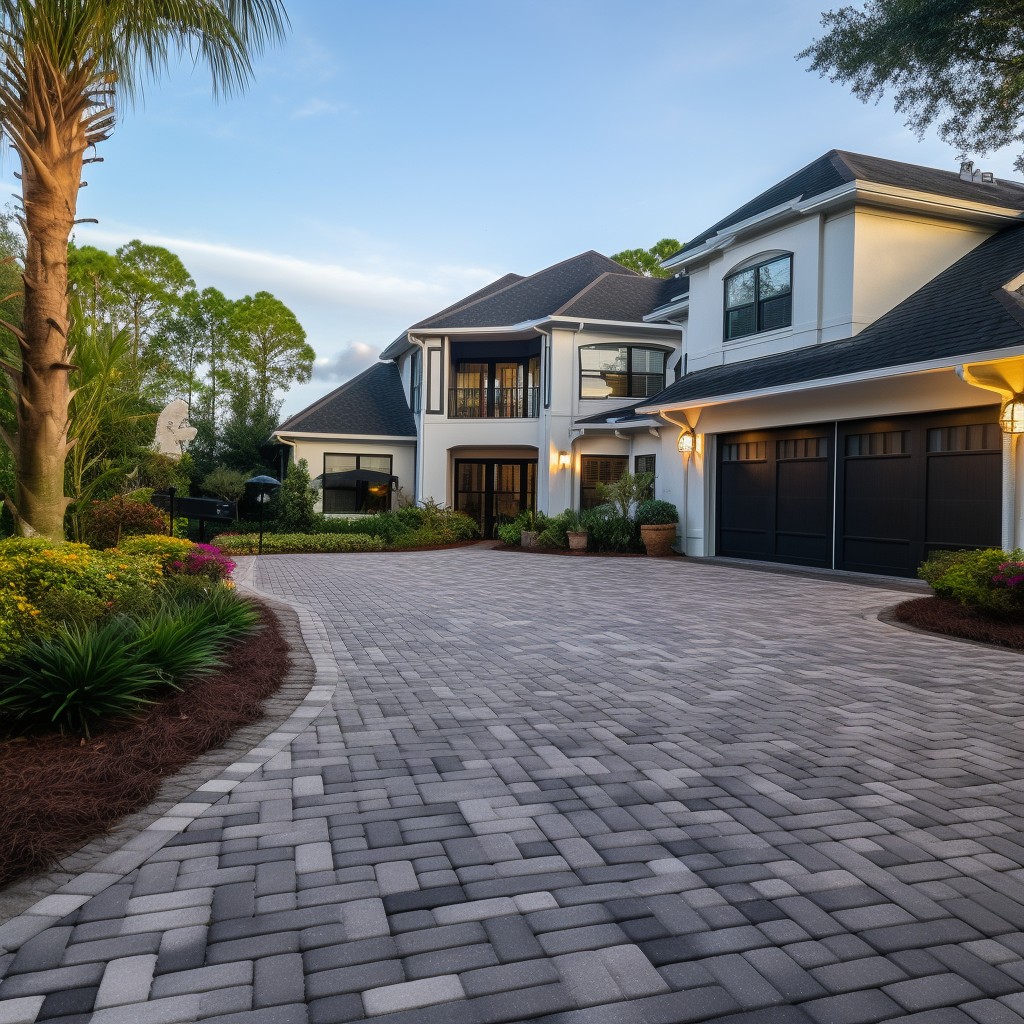
Pavers come in a variety of materials such as brick, stone, and concrete. They can be arranged in various patterns to create unique designs that complement your home’s exterior.
One of the biggest advantages of paver driveways is their durability. Unlike traditional poured concrete driveways that can crack over time due to weather changes or heavy traffic, pavers are designed to withstand extreme temperatures without cracking or shifting.
Another benefit is their low maintenance requirements. Paver driveways only require occasional sweeping and rinsing with water compared to other driveway materials like gravel which needs regular replenishment.
Lastly, if you’re concerned about eco-friendliness then consider using permeable pavers which allow rainwater runoff into the ground instead of contributing towards stormwater runoff issues.
Brick Driveways
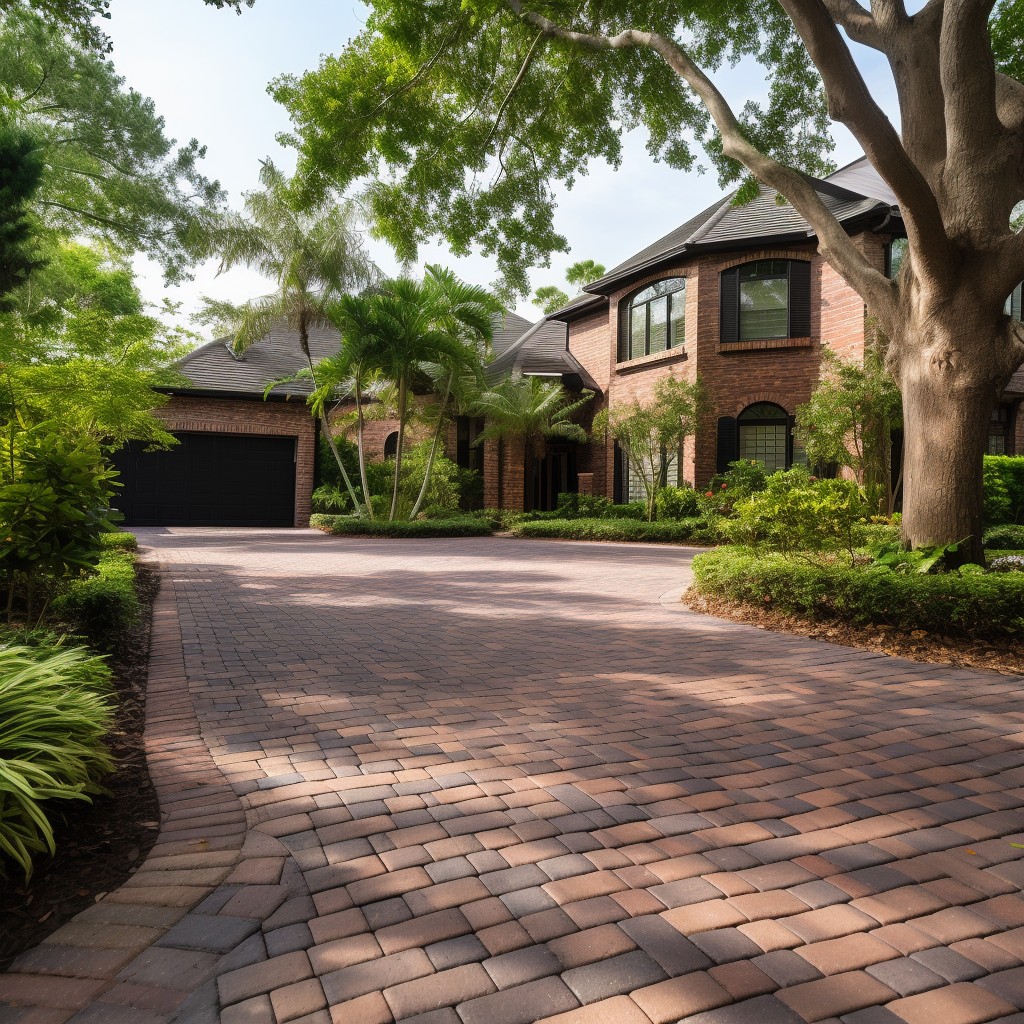
Not only do they add charm and character to your home’s exterior, but they’re also incredibly durable and low-maintenance. Brick driveways come in a variety of colors, shapes, sizes, and patterns so you can choose one that complements your home’s style.
One of the biggest advantages of brick driveways is their longevity – they can last up to 25 years or more with proper installation and maintenance. They’re also slip-resistant which makes them ideal for areas that receive heavy rainfall or snowfall.
Another benefit is that bricks are eco-friendly as they don’t require any chemicals during production like concrete does. Plus if one gets damaged it’s easy enough just replace it without having to redo the entire driveway.
Crushed Stone Driveways
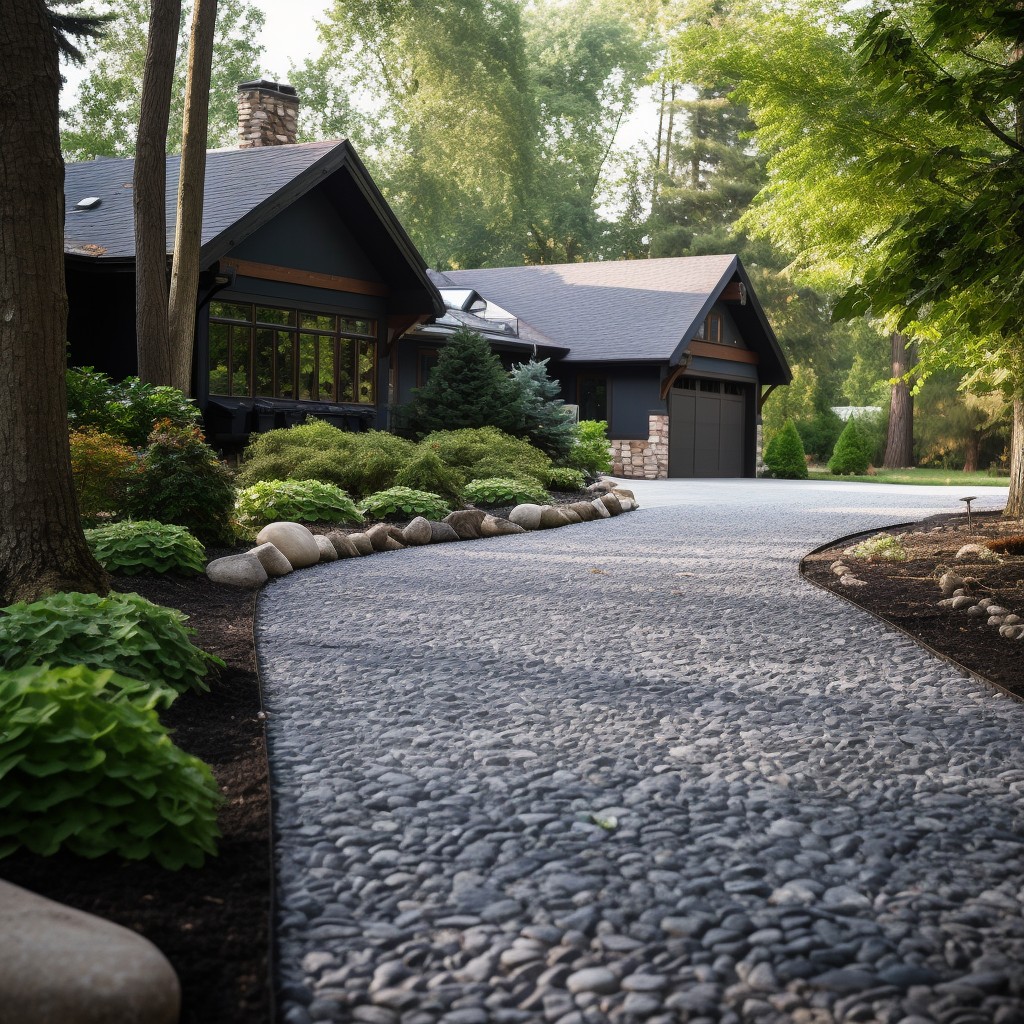
Crushed stone driveways are made up of small stones that have been mechanically crushed and compacted together to create a solid surface. They offer excellent drainage, which is ideal if your area experiences heavy rainfall or snowfall.
One of the biggest advantages of using crushed stone as your driveway material is its affordability. It’s one of the most cost-effective options available on the market today, making it an excellent choice for homeowners who want to save money without sacrificing style.
Another benefit is that they require very little maintenance compared to other types of driveways. You won’t need to worry about sealing or resurfacing them regularly like with asphalt or concrete surfaces.
However, keep in mind that while they may be low-maintenance, they do require some upkeep such as occasional raking and filling in any potholes or gaps with additional stones over time.
Shell Driveways
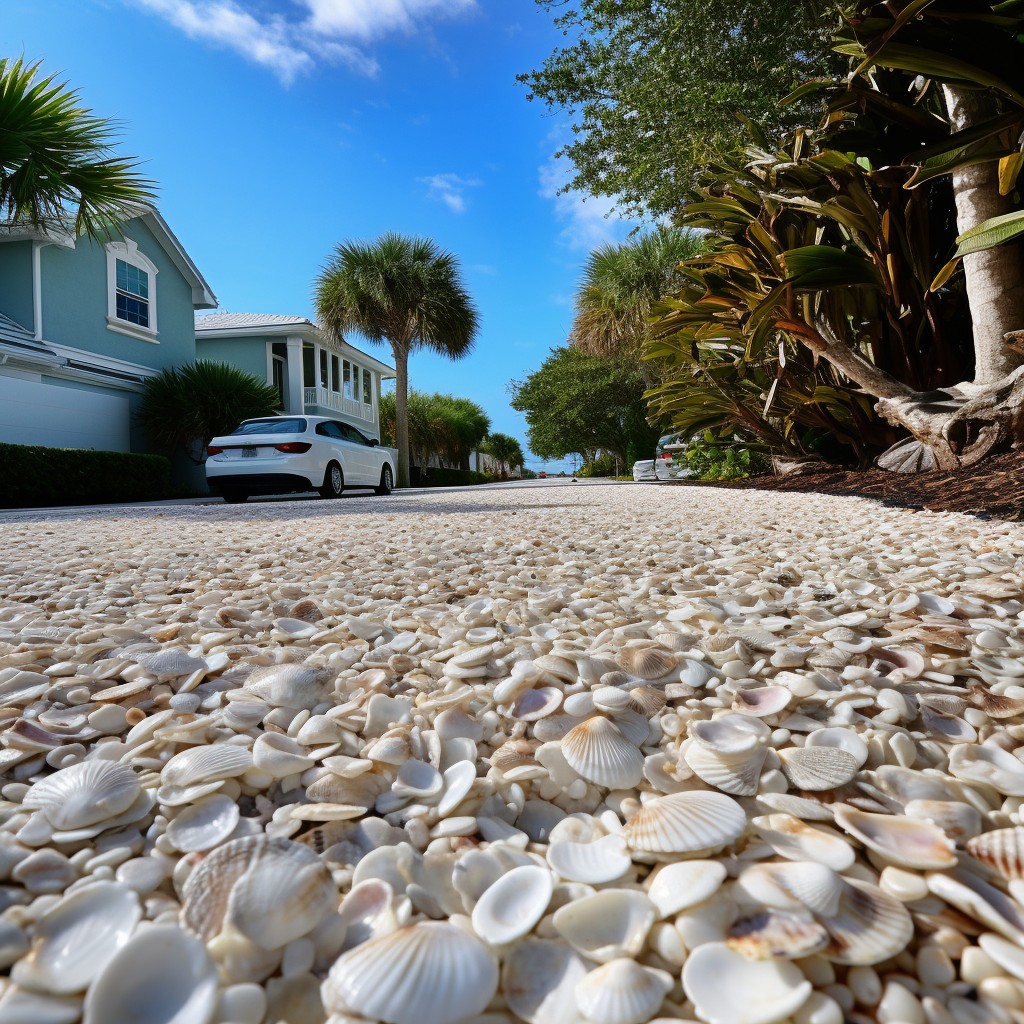
Made from crushed shells, this type of driveway is not only visually appealing but also sustainable. Shells are a byproduct of the seafood industry and using them as a building material helps reduce waste.
Shell driveways come in different colors depending on the type of shell used – white clamshells create an elegant look while oyster shells give off more earthy tones. They’re also durable and can withstand heavy traffic without cracking or breaking.
One thing to keep in mind with shell driveways is that they require regular maintenance to prevent weeds from growing through the cracks between shells. However, if properly maintained, they can last for years without needing any major repairs.
Permeable Paving
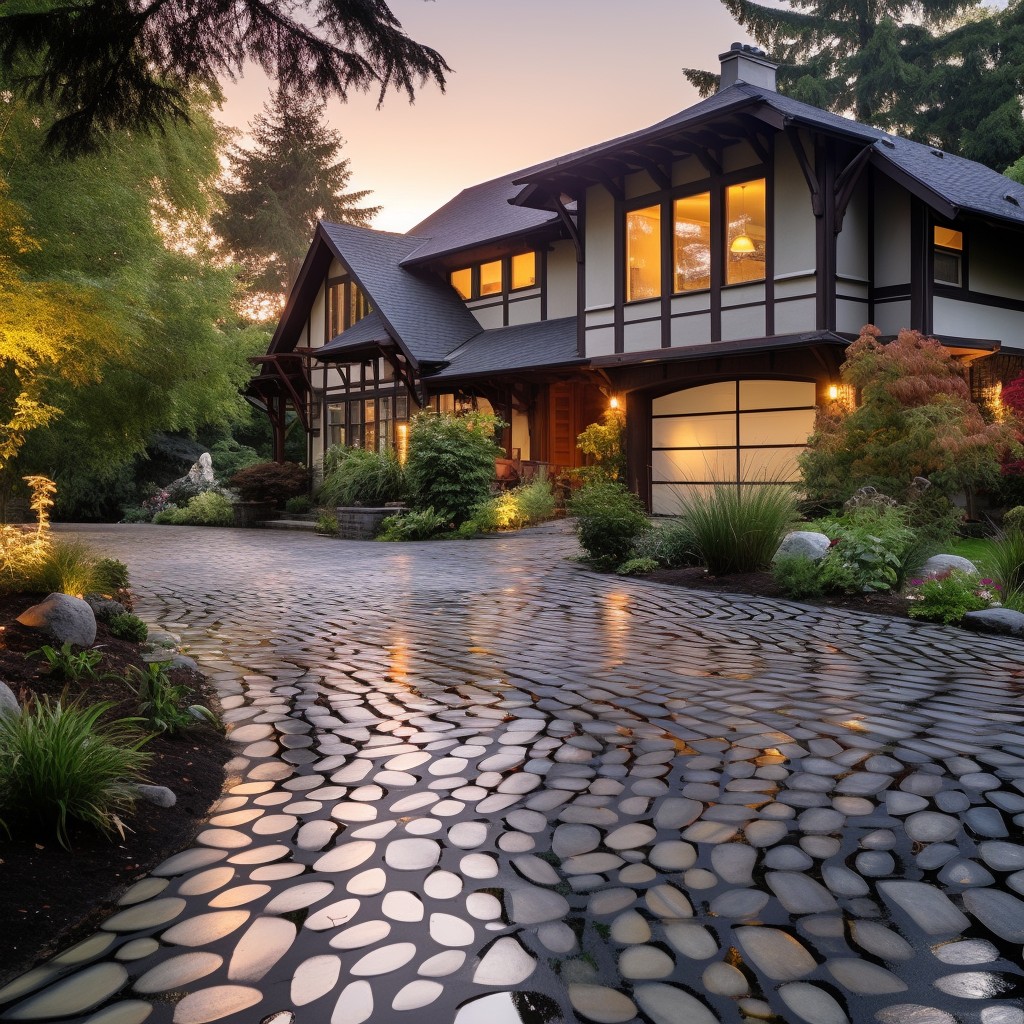
This type of driveway allows water to seep through the surface into the ground below, reducing runoff and preventing erosion. Permeable paving can be made from a variety of materials such as concrete pavers or porous asphalt.
One thing to keep in mind with permeable paving is that it requires proper installation and maintenance to ensure its effectiveness. The base layer needs to be properly graded so that water flows away from your home’s foundation, while also allowing enough space for drainage.
Natural Stone Driveways
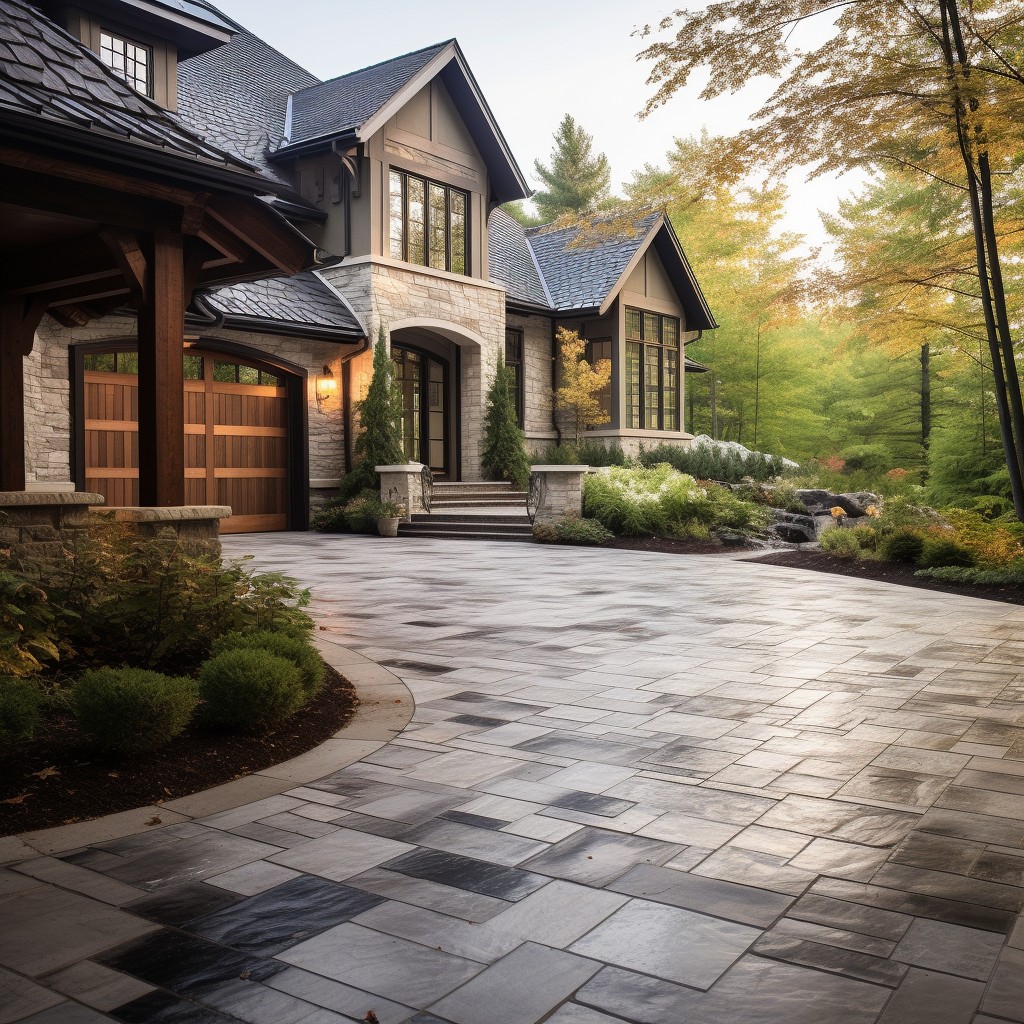
Natural stone driveways are made from materials like granite, limestone, or sandstone and can add a touch of luxury to your home’s exterior. Not only do they look beautiful but they also offer excellent durability and longevity.
One of the biggest advantages of natural stone driveways is their ability to blend seamlessly with any landscape design. They come in various colors, shapes, sizes which makes them versatile enough to complement any architectural style.
However, it’s important to note that natural stone driveways require regular maintenance as they tend to accumulate dirt easily due to their porous nature. But if maintained properly by sealing them regularly or power washing when necessary; these stunningly beautiful drives will last for years without losing its charm.
Tar and Chip Driveways
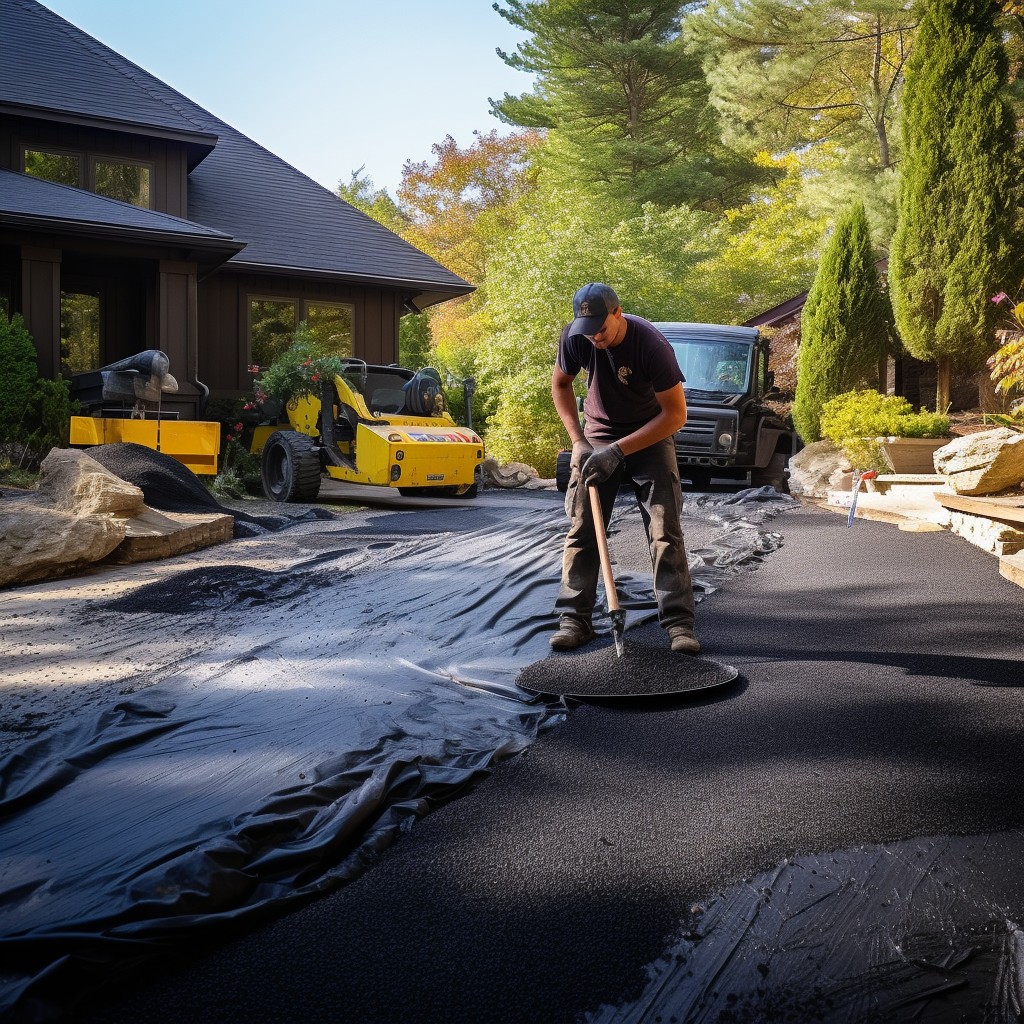
This type of driveway is made by laying down a base layer of gravel or crushed stone, followed by hot liquid asphalt. Once the asphalt has been applied, small stones are spread over it to create an attractive textured surface.
One of the biggest advantages of tar and chip driveways is their affordability – they cost significantly less than traditional concrete or paver driveways. They also require very little maintenance beyond occasional resealing every few years.
Another benefit is that they provide excellent traction in wet weather conditions due to their rough texture. Plus, since they’re made from natural materials like gravel and stone chips mixed with asphalt binder (a petroleum-based product), tar-and-chip driveways are considered eco-friendly compared to other types of paving materials.
Cobblestone Driveways
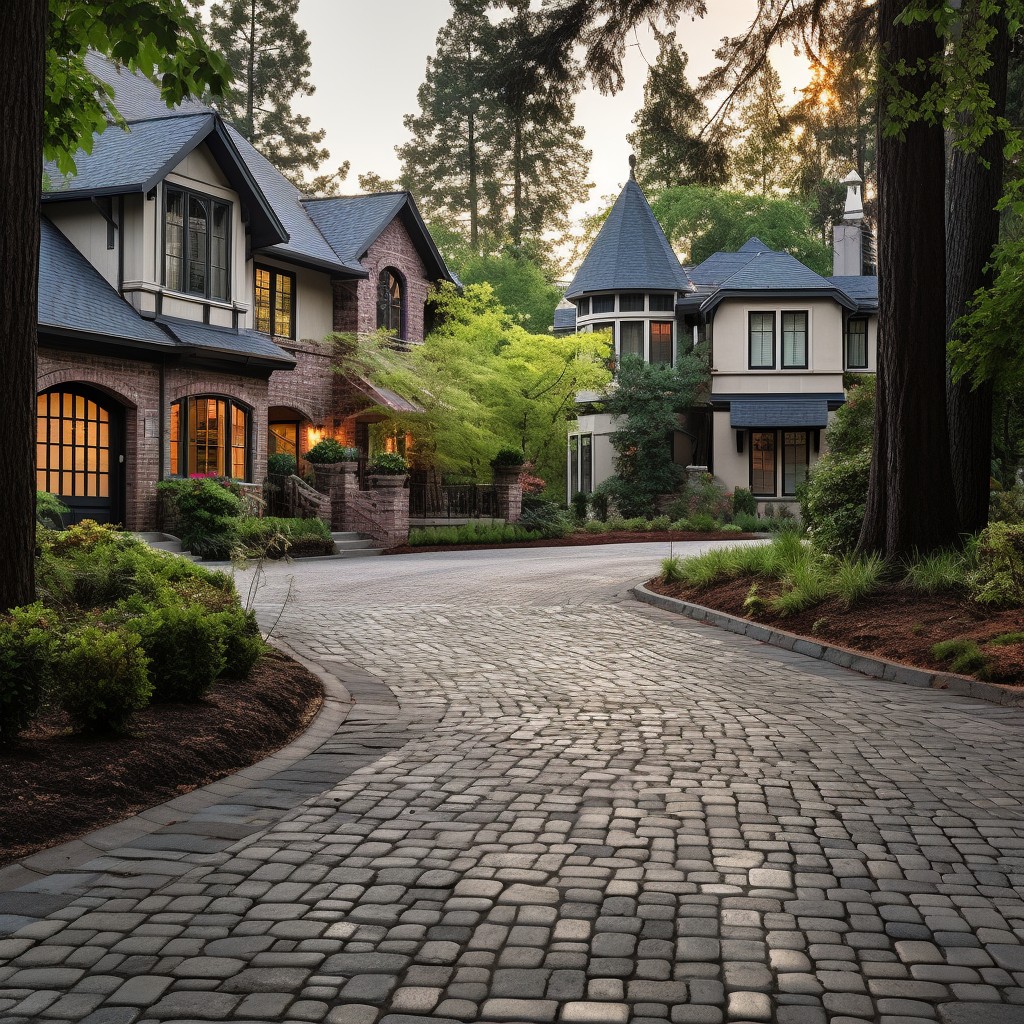
These natural stones come in various shapes, sizes, and colors that can be arranged to create intricate patterns or simple designs. Cobblestones are durable and long-lasting but require some maintenance to keep them looking their best.
One of the benefits of using cobblestones is that they add texture and depth to your driveway’s surface. They also provide excellent traction for vehicles during wet weather conditions due to their rough surface.
However, installing a cobblestone driveway can be more expensive than other alternatives on this list due to the cost of materials as well as labor-intensive installation process involved in laying each stone individually by hand.
Grasscrete Driveways
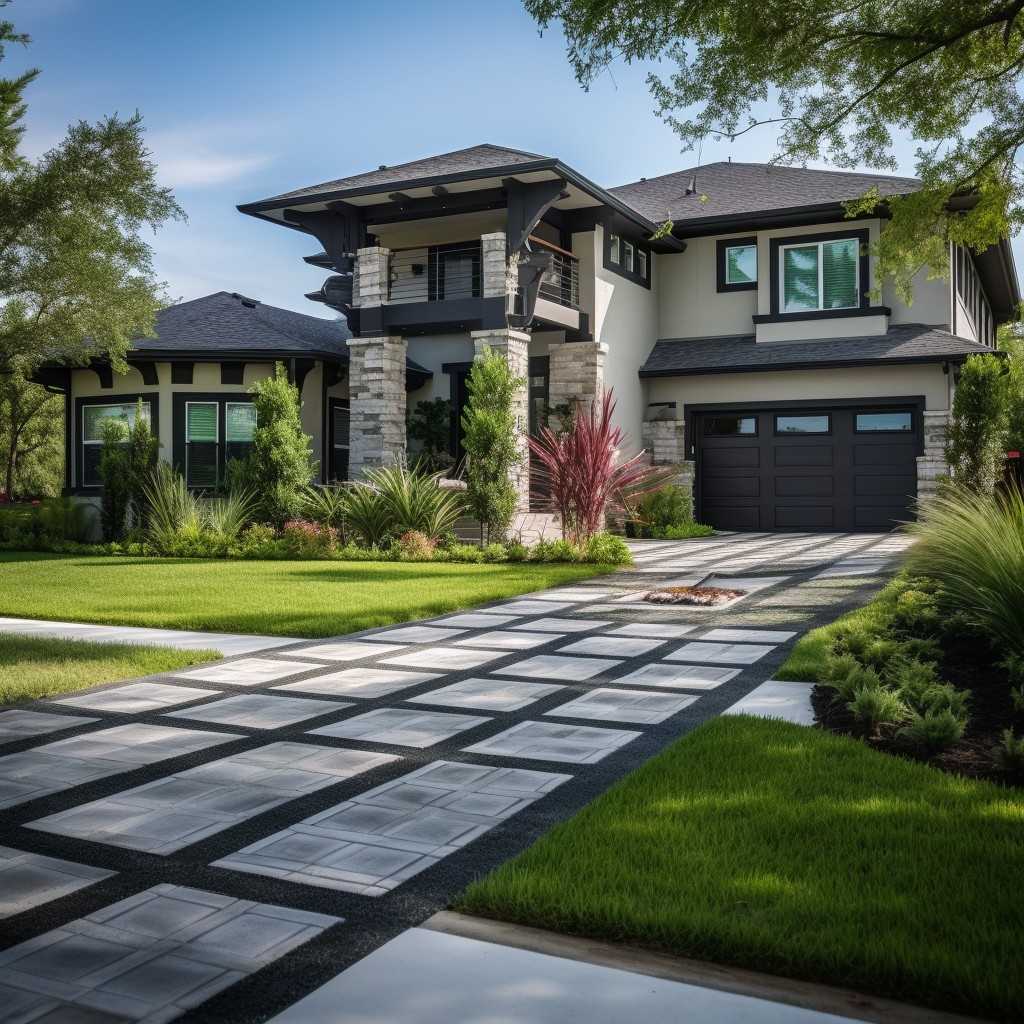
Grasscrete is a type of concrete that has holes in it, allowing grass to grow through. This creates an attractive and natural-looking driveway that also helps with drainage.
Not only are grasscrete driveways visually appealing, but they also have several practical benefits. They can reduce the amount of stormwater runoff from your property by up to 90%, which is great for the environment.
Plus, they provide excellent traction for vehicles and pedestrians alike.
One thing to keep in mind when considering a grasscrete driveway is maintenance – while it’s low-maintenance overall compared to other options like asphalt or pavers, you will still need to mow the lawn growing through it regularly.
Rubber Driveways
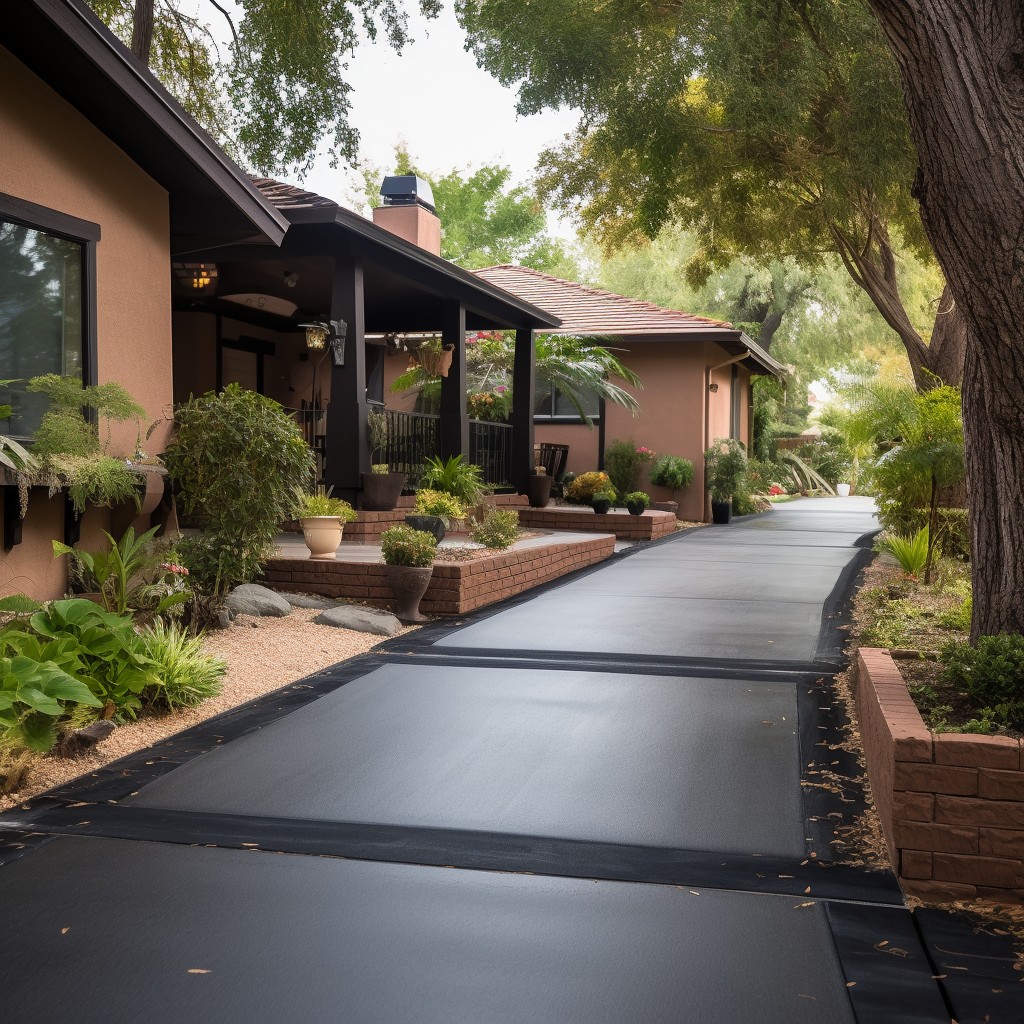
Made from recycled tires, these driveways are not only durable but also environmentally friendly. They come in a variety of colors and textures to match your home’s exterior.
One of the biggest advantages of rubber driveways is their flexibility. Unlike concrete or asphalt, they can expand and contract with temperature changes without cracking or breaking apart.
This makes them ideal for areas with extreme weather conditions.
Another benefit is that they provide excellent traction even when wet, making them safer than other materials like gravel or stone.
Installation is relatively easy as well – the surface can be laid over an existing driveway after it has been cleaned thoroughly and leveled out properly.
Resin-Bound Surfacing
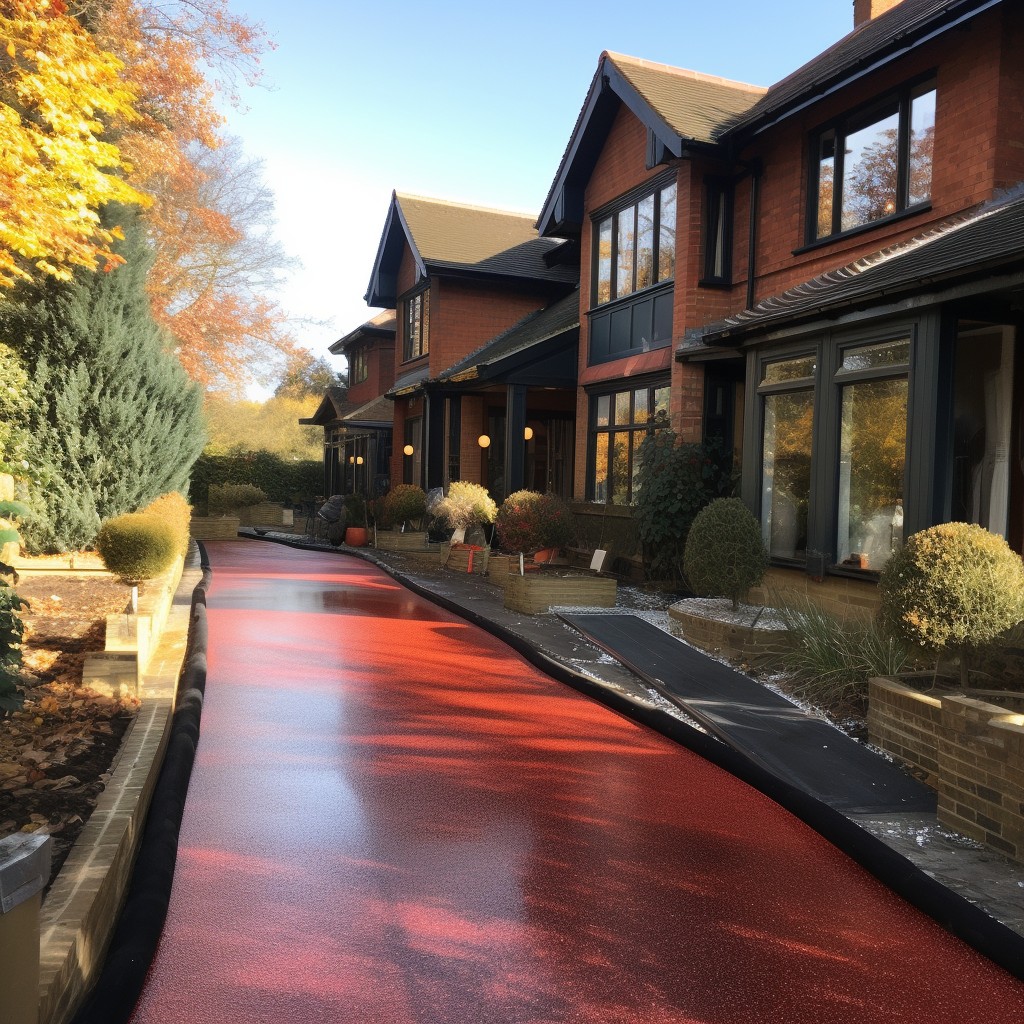
This material is made by mixing natural aggregates with a clear UV-stable resin to create a smooth and durable surface that’s resistant to weeds, oil spills, and heavy traffic.
One of the biggest advantages of resin-bound surfacing is its versatility in terms of design. You can choose from various colors and textures to create a unique look that complements your home’s exterior.
Plus, it’s permeable which means rainwater can easily drain through it instead of pooling on top or running off into storm drains.
Another benefit is its durability – this type of surface has been known to last up to 25 years with proper maintenance! And speaking of maintenance, all you need is an occasional sweep or power wash every few months – no sealing required!.
Grid Driveways

These driveways are made up of interlocking plastic or concrete grids that allow grass or gravel to grow through them, creating a natural-looking surface. Not only do they look great, but they also provide excellent drainage and can help reduce erosion on your property.
One of the best things about grid driveways is their versatility – you can choose from different types of grids depending on your needs and preferences. Some grids are designed specifically for heavy traffic areas like parking lots while others are more suitable for residential use.
Another advantage of using grid systems is their ease of installation – most homeowners with basic DIY skills can install them without professional help. Plus, if one section gets damaged over time due to wear-and-tear or weather conditions, it’s easy to replace just that section instead of having to redo the entire driveway.
Pervious Concrete Driveways
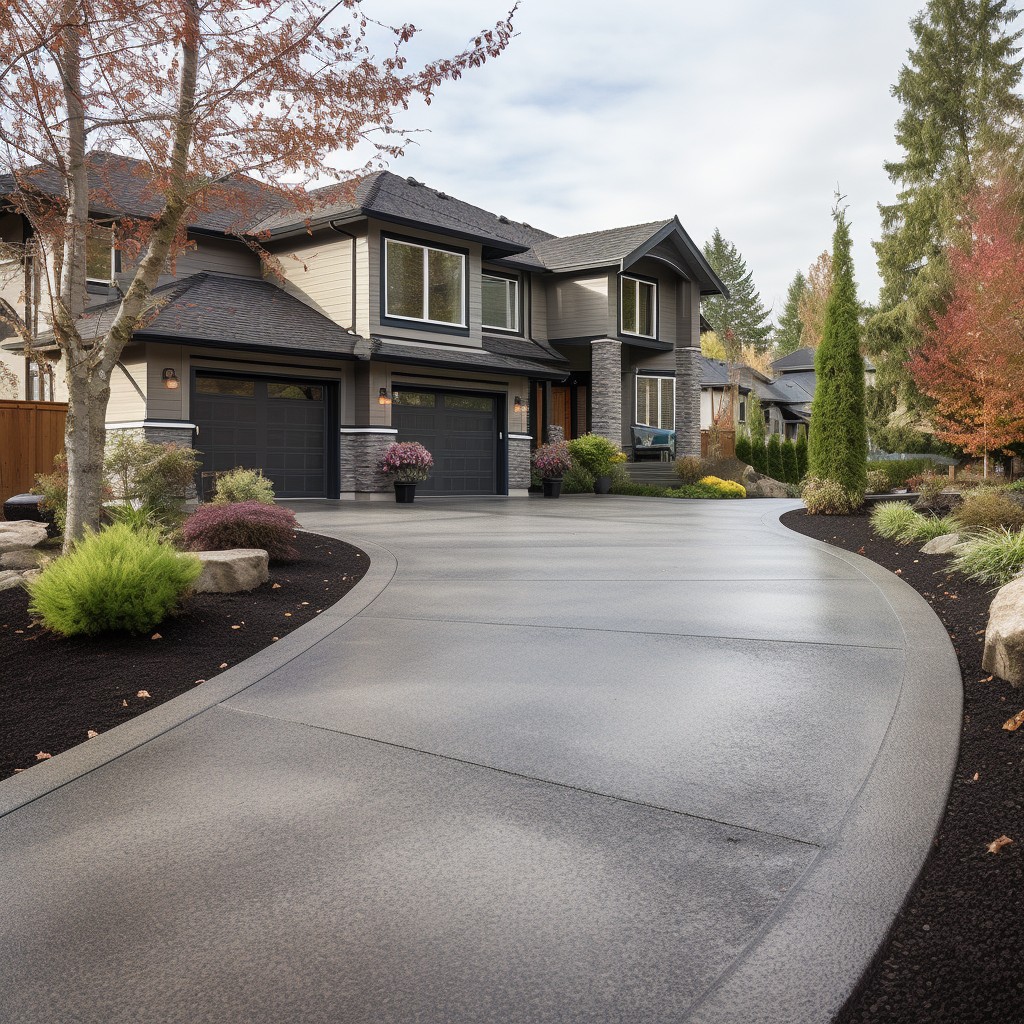
Unlike traditional concrete, which is impermeable and can lead to water runoff and erosion problems, pervious concrete allows water to pass through it into the ground below. This means that rainwater can be absorbed by the soil instead of being directed into storm drains or causing flooding.
Not only does this help prevent environmental damage caused by excess runoff but also reduces your home’s carbon footprint. Pervious concrete is made with a mix of cement, coarse aggregate (such as gravel), and little-to-no fine aggregates (like sand).
The result is a porous surface that looks similar to regular pavement but has tiny holes throughout it.
While pervious driveways may cost slightly more than traditional ones upfront due to their specialized installation process, they require less maintenance in the long run since they don’t crack or need sealing like other types of paving materials do. Plus, many cities offer incentives for homeowners who install permeable surfaces on their properties because they help reduce stormwater pollution.
Basalt Paver Tile Driveways
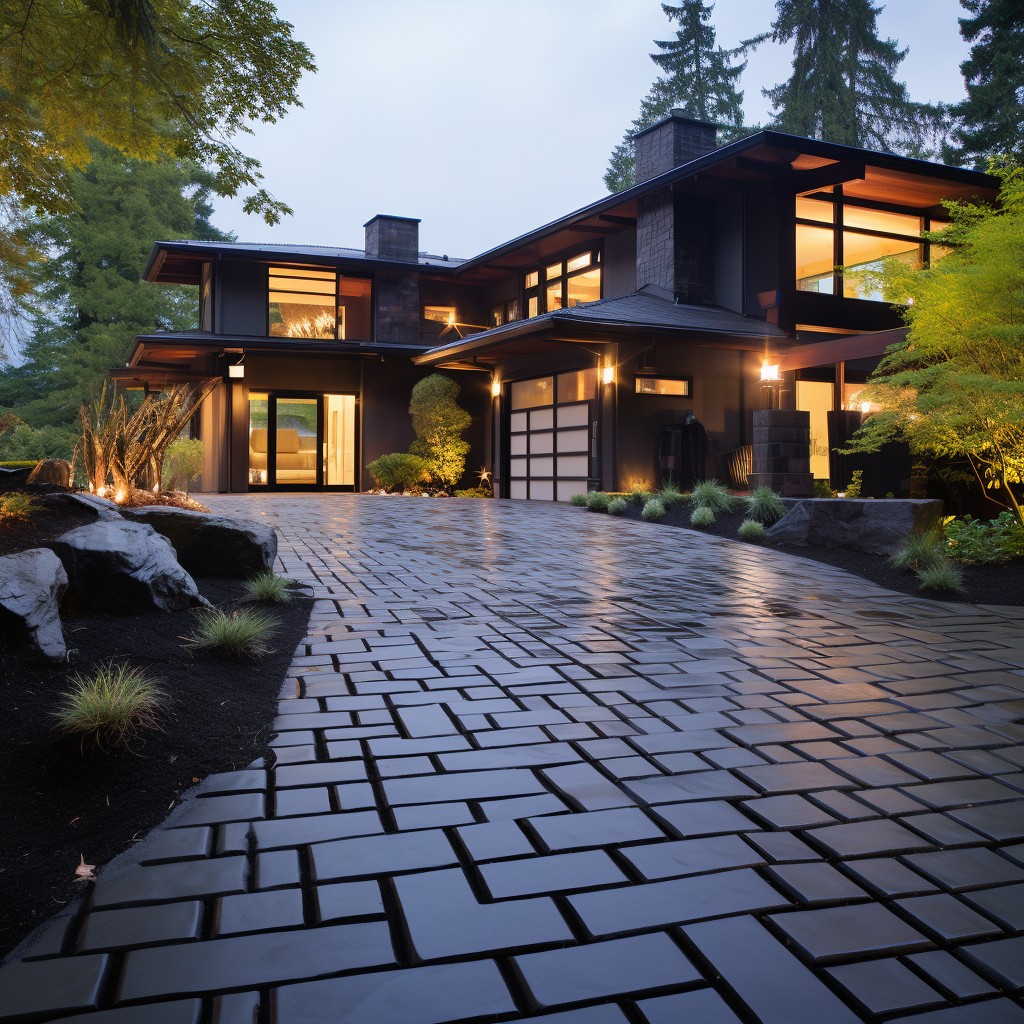
Basalt is a volcanic rock that’s known for its durability and strength, making it an excellent choice for high-traffic areas like driveways. The tiles come in various sizes and shapes, allowing you to create intricate patterns or simple designs depending on your preference.
One of the benefits of using basalt pavers is their natural slip resistance due to their textured surface. This makes them ideal if safety is a concern in your area or if you have steep inclines on your property.
Another advantage of using these tiles as opposed to traditional concrete options is that they require minimal maintenance once installed properly. They are resistant to stains from oil spills or other substances commonly found on driveways.
While the initial cost may be higher than some other alternatives mentioned earlier, such as gravel or crushed stone driveways; over time, this investment will pay off with lower maintenance costs compared with concrete options.
Grass Driveways
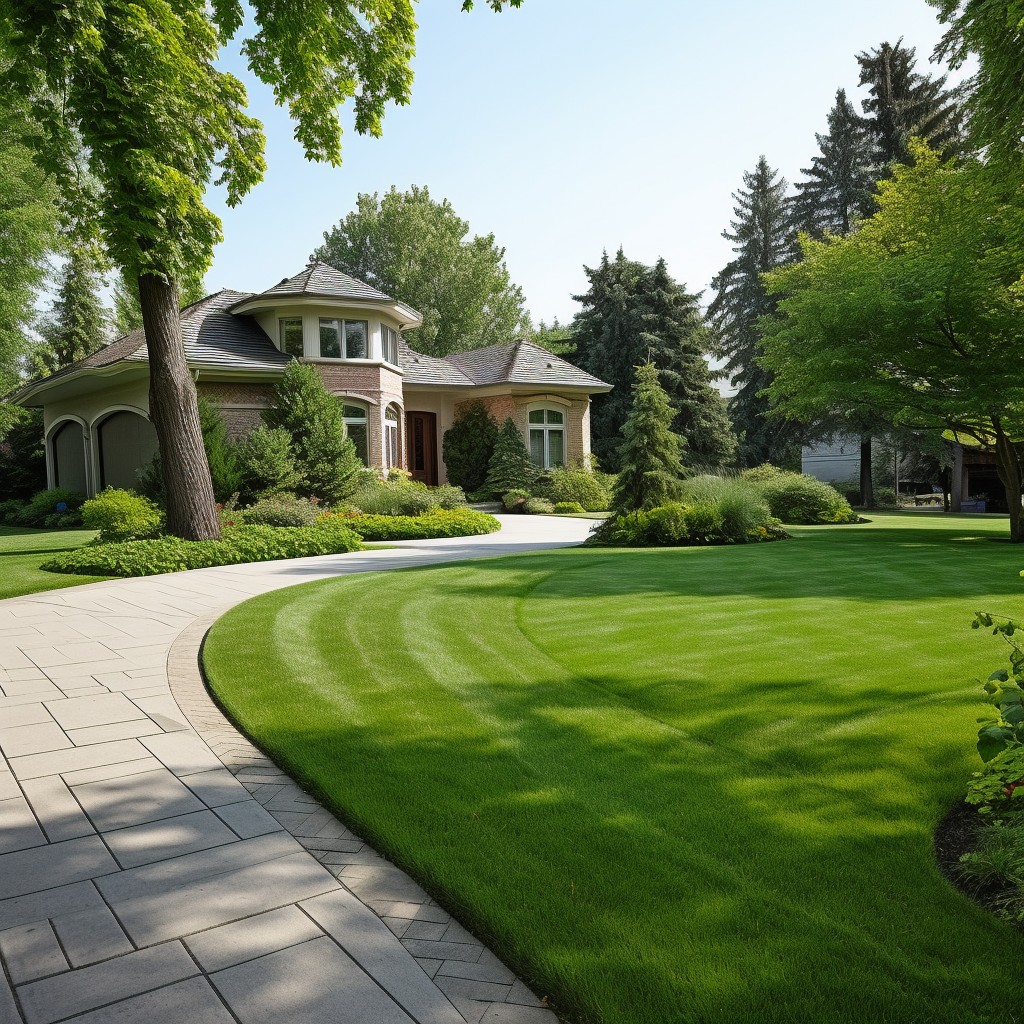
These driveways are made by laying down a special grid system that allows grass to grow through it. The result is a driveway that looks like an extension of your lawn.
Not only do these driveways look great, but they also have some practical benefits too. They absorb rainwater and reduce runoff, which can help prevent flooding in your area.
Plus, the grass helps filter pollutants from the air and water.
One thing to keep in mind with this type of driveway is maintenance – you’ll need to mow it regularly during the growing season so that it doesn’t get too long or become unsightly.
Eco-friendly Driveway Options
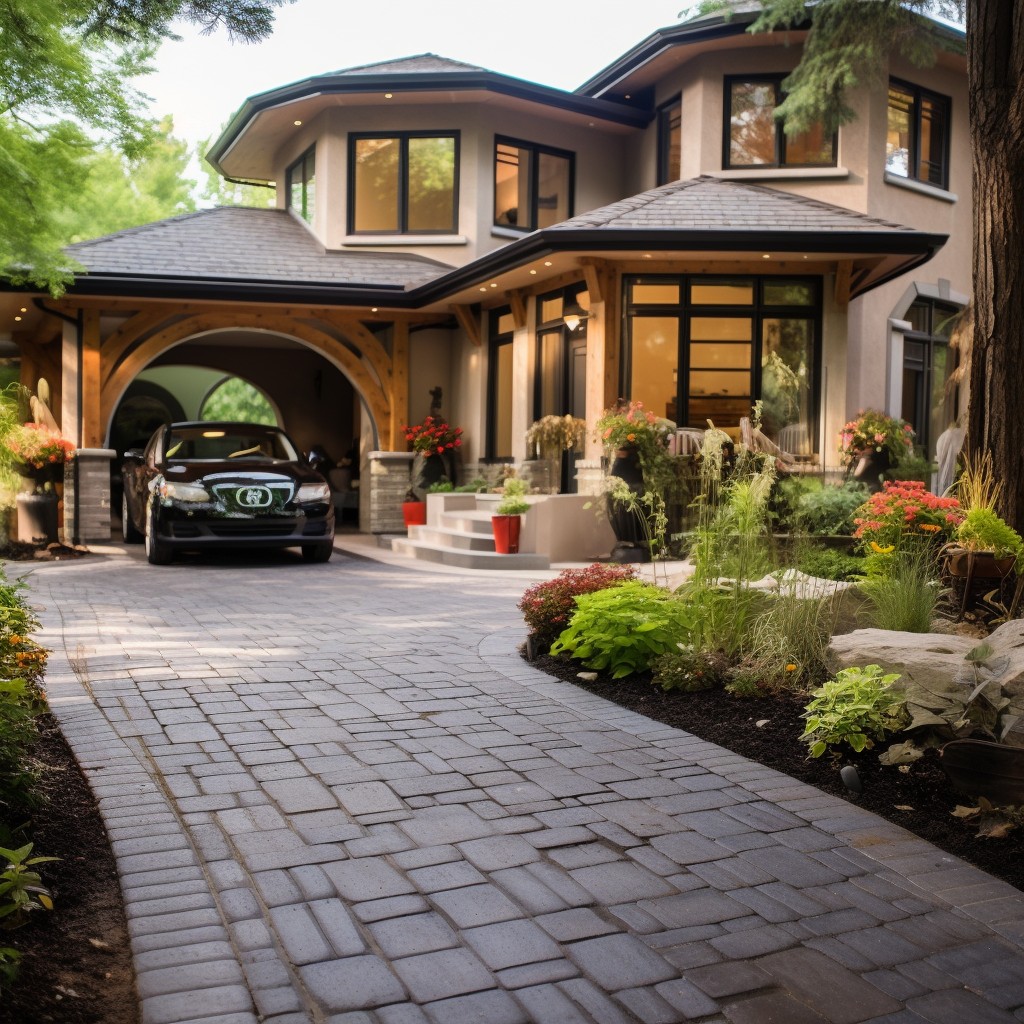
There are several options available that not only look great but also help to preserve our planet.
One of the most popular eco-friendly driveway options is permeable paving. This type of pavement allows water to seep through it and into the ground below, reducing runoff and preventing erosion.
Permeable paving can be made from a variety of materials such as concrete, asphalt or pavers.
Another option is grass driveways which allow grass or other vegetation to grow in between grid-like panels that provide support for vehicles while allowing rainwater infiltration into soil beneath them.
Rubber driveways are another excellent choice if you want an eco-friendly option since they’re made from recycled tires! They come in various colors and patterns so you can choose one that complements your home’s exterior design perfectly!.
There are many ways to create beautiful yet sustainable driveways without harming our environment.
Low-maintenance Driveway Materials
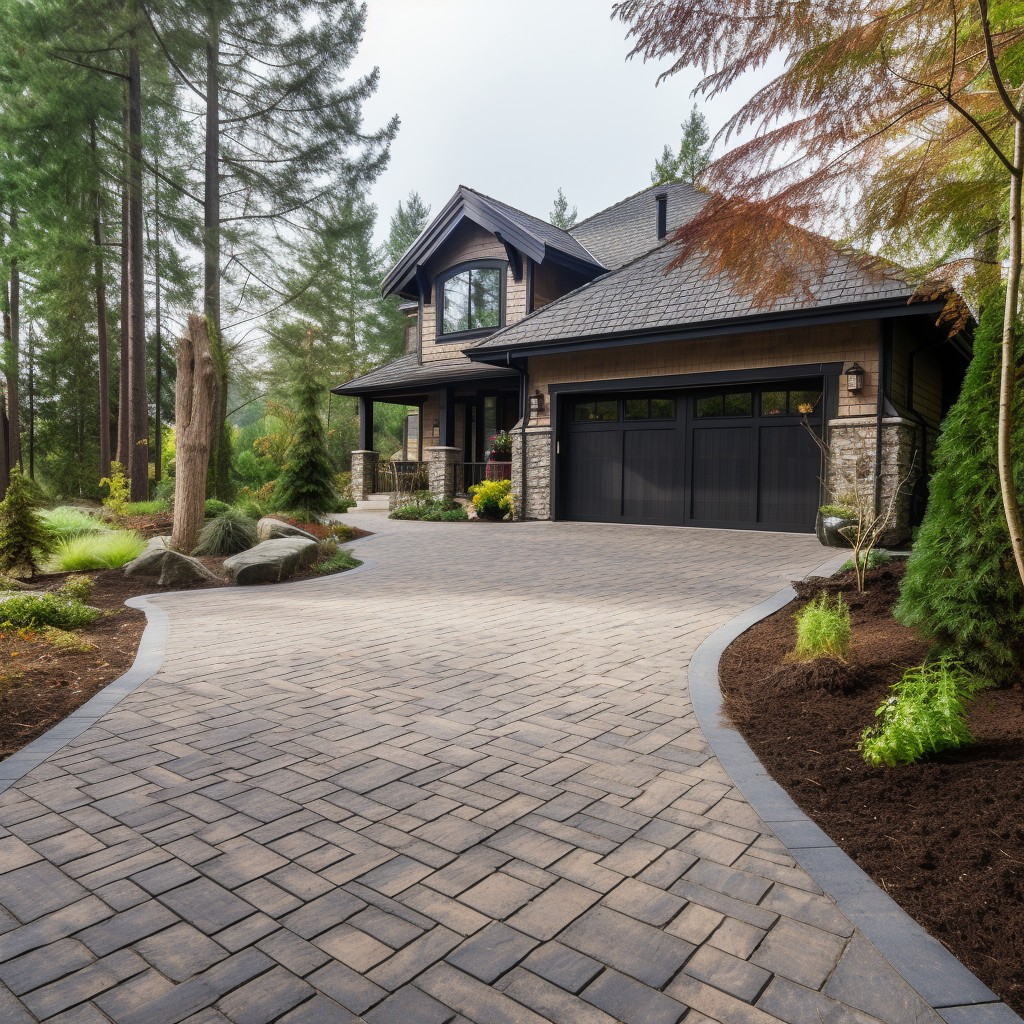
One option is gravel, which can be easily replenished and doesn’t require sealing or resurfacing. Another choice is asphalt, which only needs occasional patching and cleaning to maintain its appearance.
Pavers are also a great low-maintenance option since they don’t crack like concrete does over time. They can simply be replaced individually if needed without having to redo the entire driveway.
For those who want an eco-friendly solution with little maintenance required, permeable paving allows water to seep through the surface instead of running off into storm drains. This not only reduces runoff but also eliminates standing water on your driveway after heavy rainfalls.
Budget-friendly Concrete Alternatives
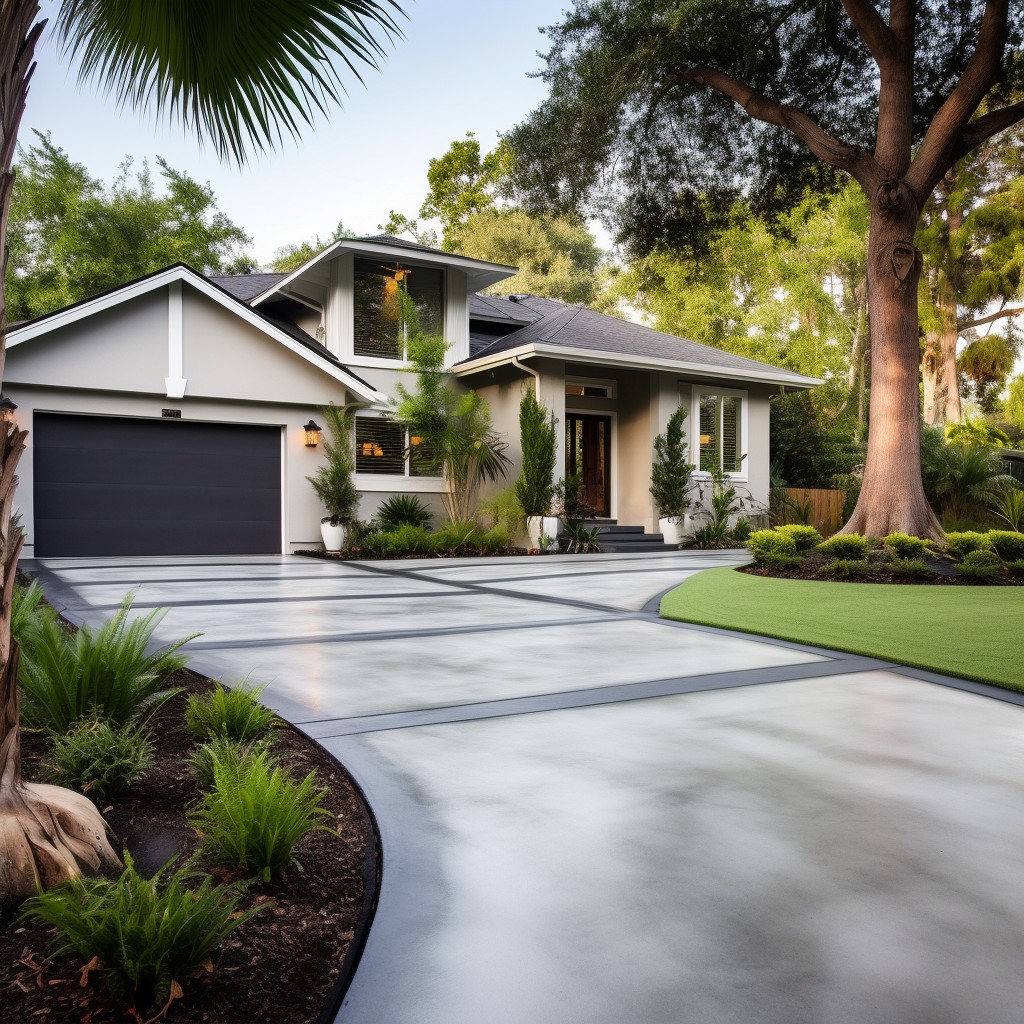
One popular choice is gravel driveways, which offer a rustic and natural look while being easy on the wallet. Another great option is tar and chip driveways, which consist of crushed stone mixed with liquid asphalt – this creates an attractive textured surface that’s durable and low-maintenance.
For those who want something more visually striking than plain concrete but still affordable, consider using pavers or bricks to create intricate patterns or designs. Crushed stone driveways can also be an excellent alternative as they come in various colors and sizes.
Lastly, if you’re looking for eco-friendly options that won’t break the bank either then permeable paving could be just what you need! This type of driveway allows water to seep through into the ground below instead of running off into storm drains like traditional pavement does – making it both environmentally friendly AND cost-effective.
Don’t let your budget hold back your creativity when it comes to designing your dream driveway! With these fantastic alternatives available at reasonable prices – there’s no excuse not to have a beautiful entranceway leading up towards home sweet home.
FAQ
What is the least expensive hard surface for a driveway?
The least expensive hard surface for a driveway is gravel, with a price ranging from $1 to $3 per square foot.
What is best material for driveways?
The best material for driveways is concrete, as it offers more design options and lasts longer than asphalt, but personal preferences and installation abilities should also be considered while checking local building and zoning regulations.
What is the cheapest material for a new driveway?
The cheapest material for a new driveway is generally gravel.
What are some eco-friendly alternatives to traditional concrete driveways?
Some eco-friendly alternatives to traditional concrete driveways include permeable pavers, recycled materials, and gravel or grass surfaces.
How do permeable driveway materials compare to concrete in terms of durability and maintenance?
Permeable driveway materials generally require more maintenance than concrete but may offer increased durability due to better drainage, reducing potential damage from water buildup and freeze-thaw cycles.
What factors should be considered when choosing a driveway material for different climates?
When choosing a driveway material for different climates, consider factors such as durability, climate suitability, maintenance requirements, traction, cost, and aesthetics.
Recap
Liked this article? Here's what you can read next:
